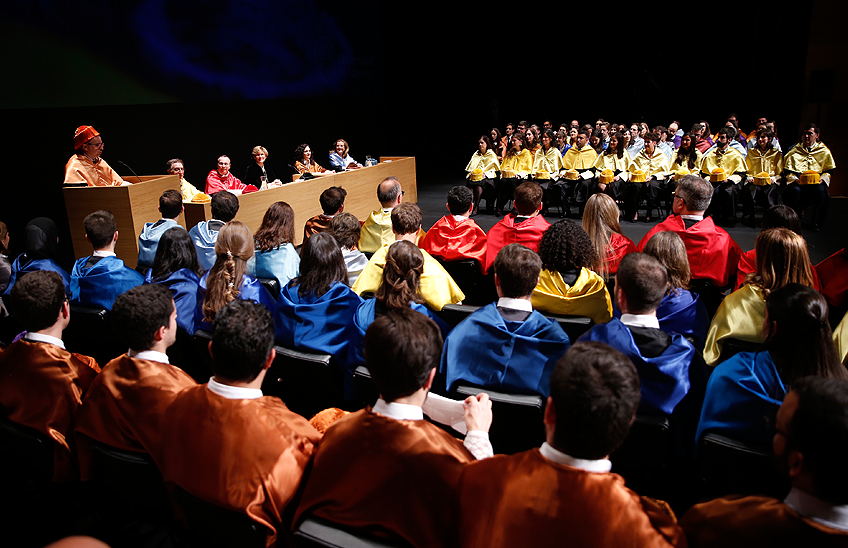News
LATEST NEWS AND EVENTS FROM THE SCHOOL OF ENGINEERING
The University celebrates the investiture of 202 doctorates from 30 countries
The rector, María Iraburu, is committed to human, open and committed research

FotoManuelCastells/202 PhDs from 30 countries have defended their theses in the last year at the University of Navarra.
03 | 06 | 2022
A total of 202 people from 30 countries have defended their theses during the last year at the University of Navarra. The investiture of the new doctors took place in the Museum of the academic center. Presided over by the rector, María Iraburu, the event was attended by Giovanni Valentini, IESE professor and sponsor of the graduating class, and Edward Augusto Vélez Aponte, doctor of theology atSchool , who addressed the audience on behalf of the new graduates.
The researchers who have obtained the degree come from Argentina, Brazil, Bulgaria, Cameroon, Chile, China, Colombia, Côte d'Ivoire, Costa Rica, Cuba, Ecuador, El Salvador, France, Germany, Guatemala, Guinea, Honduras, India, Italy, Lebanon, Mexico, Paraguay, Peru, Portugal, Slovakia, Spain, the United States, Uruguay, Uganda and Venezuela.
During the event, the rector gave a speech entitled "What research does the world need?", in which she spoke about the role of research in society. "This is not a trivial question. We are at a time of sharp contrasts and paradoxes. There are countries in which researchers are seen by large sectors of the population as an elite distant from reality," he said.
This status, he added, encourages us to think about what research is and what place it occupies in society, "because the paradox, in reality, may be more of a warning sign, a manifestation that this noble and hard work has lost its way or has been distorted".
The rector affirmed that good research is characterised by "being an expression of love for the truth; being carried out with humility, a humility that is not without hope; appreciating the contribution of other sciences and looking beyond one's own field; and having a vocation of service to society". In this sense, he encouraged doctors to "commit themselves to this human, open, committed research" and to define their own "professional convictions", "those ultimate motivations that have to do with the authenticity of the person and which, furthermore, leave a mark in the work environment and in institutions".
Contributing to progress together
In his speech, Giovanni Valentini, IESE professor and sponsor of the graduating class, pointed out that in these "hard times", "our duty is to actively contribute to progress, to the improvement of society", and "to do it together", since these years and the pandemic have shown that "there are no small or big things that we can achieve alone".
The professor emphasized that in addition to studying at the University of Navarra, there are two aspects that unite the new doctors and that have to do with the scientific method. First, possessing a approach, a scientific perspective, and second, being accustomed to working with uncertainty. "We are told that the world is becoming not only more complicated every day, but more uncertain. And that's scary. Our competitive advantage is that we are (or should be) used to thinking in terms of uncertainty." The sponsor proposed embracing uncertainty rather than running away from it. "Uncertainty can undermine our convictions, but it also creates opportunities for our growth and that of the Economics".
For his part, Edward Augusto Vélez Aponte, doctor at Sacred Theology, showed his gratitude on behalf of the doctors, a gratitude that is based, in his opinion, on three pillars that have been present during these years of doctoral study: "God as source of all knowledge; the search for truth; and the tribute to our families, because thanks to them we are allowed to receive with such high dignity the doctoral investiture that confers us this illustrious university," he said.
